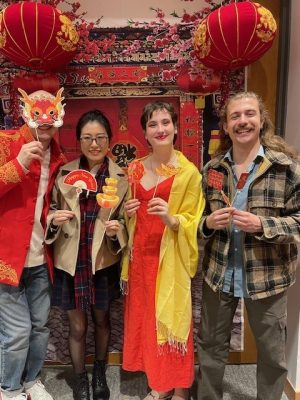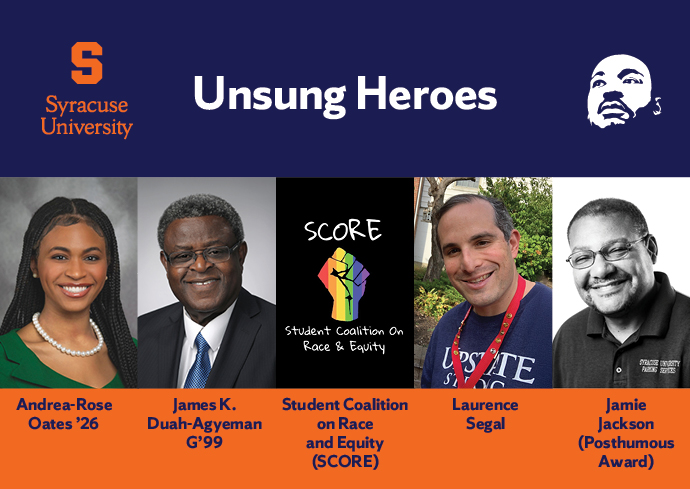While many people here in the U.S. celebrated the start of a new year when the Gregorian calendar flipped from Dec. 31 to Jan. 1, as many as 2 billion people from Asian cultures around the globe will begin to observe the Lunar New Year—also known as Chinese New Year or the Spring Festival—this week.
On Jan. 29, we bid farewell to the Year of the Dragon and usher in the Year of the Snake, which, according to the Chinese Zodiac, represents harvest, spirituality and good fortune. Lunar New Year celebrations last up to 15 days and include such various customs as gathering with family, preparing traditional foods, artistic performances and the gifting of red envelopes to pass on good fortune and blessings to the younger generations.

Students enjoy the 2024 Orange After Dark/Center for International Services Celebration
For international students on campus looking for a taste of home or for anyone who simply wants to celebrate a new beginning based on the lunar calendar, check out the following selection of Lunar New Year events being held on campus.
Tuesday, Jan. 28—Asian American Journalists Association Celebration
The Asian American Journalists Association will hold a Lunar New Year Celebration in Newhouse 1 Room 303 from 6:30 to 8:30 p.m. There will be fun activities, delicious food and an amazing night planned for all!
Wednesday, Jan. 29: Food Services Pop-Up
Campus Dining centers will host pop-up events in all dining centers at dinnertime, with a build-your-own stir fry station featuring noodles, rice and extra toppings; dumplings and spring rolls.
Wednesday, Jan. 29: Newhouse International Students Association Tabling Event
The Newhouse International Students Association will host a tabling event in food.com, located on the second floor of Newhouse 3, from noon to 1 pm. Stop by to get your lucky red envelope and Asian treats to celebrate the Year of the Snake.
Friday, Jan. 31: School of Architecture Lunar New Year Celebration
A special cultural event will be held in Slocum Hall from 5 to 7:30 p.m., organized by international students in the School of Architecture and Dean Michael Speaks. Students can engage in a wide range of activities, such as knot tying, calligraphy, fortune scratch-offs, Chinese horoscopes and a photo booth. There will also be musical and vocal performances and a dancing dragon. Food, chocolate coins and traditional candies, and tea with Dean Speaks will be served. A series of short faculty presentations on East Asian culture and architecture will begin at 5:30 p.m.
Friday, Jan. 31: Orange After Dark/Center for International Services Lunar New Year Celebration
The campus community is invited to celebrate the Lunar New Year with Orange After Dark and the Center for International Services from 11 p.m. to 1 a.m. in 304 ABC Schine Student Center. There will be a light Chinese buffet and activities, including making a Chinese lucky knot, creating PaperCut, origami, Wish Tree, chopstick bean relay race and calligraphy. Tickets can be obtained through the Student Box Office My Ticket Portal.
Friday, Feb. 7: Chinese United Student Association and Chinese Student and Scholars Association Chinese New Year Party
The Chinese United Student Association and the Chinese Student and Scholars Association will host a Chinese New Year Party at 6 p.m. in the Schine Student Center’s Goldstein Auditorium. There will be programs relating to Chinese culture, dance, martial arts and music.
Share Your Lunar New Year Photos With Us!
However you decide to celebrate—whether at the events mentioned above or elsewhere—send your photos to SU News! Email newsphoto@syr.edu and we’ll share a selection of Lunar New Year pictures in the weeks to come.

